“I want to understand more the women in the family because I am a woman, I have a girl, because this is how I am, how I function – what can I say,” says Egyptian director Marianne Khoury in her film as she addresses the late renowned Egyptian director Youssef Chahine, to whom she refers to in her film as ‘Uncle Joe’.
In her latest award-winning autobiographical documentary film, Khoury explores four generations of her family’s female lineage through intimate conversations she has with her daughter (Sara Shazli), as well as other family members, and an extensive amount of various archival material.
Jumping between seemingly camera-phone-recorded conversations she has with her daughter to black and white family photos, Khoury provides audiences with a moving narrative of her family’s trivial past and present. She focuses more so on the women of her family, taking us through the personal journeys of her grandmother – to whom she refers to as Nona – and her mother Iris – interjecting herself and her own daughter throughout the film.
The conversations in the film tackle big questions and subjects in life – from death and depression to love and family – in such a way that makes one feel for the family portrayed on screen, while at the same time relate to them in some sense as well. Khoury’s film also puts into question how one generation can affect another, the complexities of motherhood and mother-daughter relationships, as well as the layered lives we all lead as individuals and how we must take this into consideration.
Being that Khoury’s family is that of the legendary Egyptian director Youssef Chahine – whose sister Iris is Khoury’s mother – the film is met with an added layer of intrigue, most especially at the moments in which the director cross cuts between scenes from some of Chahine’s famed films alongside real footage, images, or stories that coincide with what is depicted in these films, adding an unexpected layer of reality that is both shocking and endearing. Aside from this interesting link however, it is the relatability of this not-so-typical Egyptian family’s trials, tribulations and endurance that truly speaks to the audience – it is in fact the very essence of the film.
The family has both Egyptian and Levantine roots, but they mainly all grew up in Alexandria. As was custom at the time, Khoury’s family all spoke a mixture of Arabic and French – with some English and Italian. This is precisely why most of the conversations in the film are had in French, synonymous with upper class Egyptian families of past generations.
Starting from Chahine’s recorded conversation with his mother (Khoury’s grandmother), we get an idea of this particular woman’s strength and resiliency, as well as her thoughts on status and image. Having gone through her own personal hardships, starting with her arranged marriage at the young age of 18, to the loss of her eldest child when he was just 9 years old, Khoury’s grandmother was evidently a strong-willed woman who kept fighting and moving forward with her head held high. Khoury later on describes her beloved grandmother as a beacon of love and light.
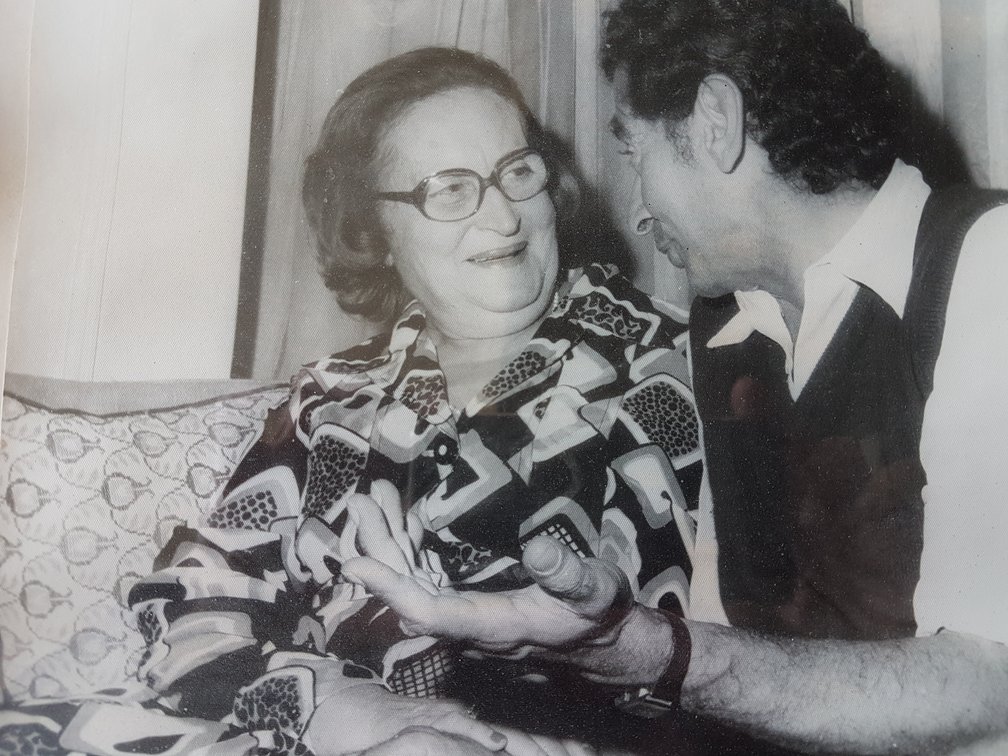
When initially talking of her mother Iris with her own daughter Sara, Khoury very vulnerably questions her mother’s love for her, saying that she knows she was an unwanted baby and that her mother almost had her aborted.
As we further explore Iris’ own experiences throughout the film, as well as the fact that Khoury in fact had spent the most time with her mother out of her siblings, the audience discovers – perhaps alongside Khoury’s discovery herself – that there is so much a person goes through that we never put into consideration, that people evolve, and that answers to big questions can never be simple; ultimately Khoury says, “she did love me, in her own way.”
Iris is portrayed as a beautiful, charismatic character who was loved by many; however, Khoury says her mother seemed miserable often and that, later in life, she suffered from depression. The way in which Khoury discusses her mother’s mental illness with her daughter seems very practical, yet moving in the sense that they both try to question and understand this woman’s complexities.
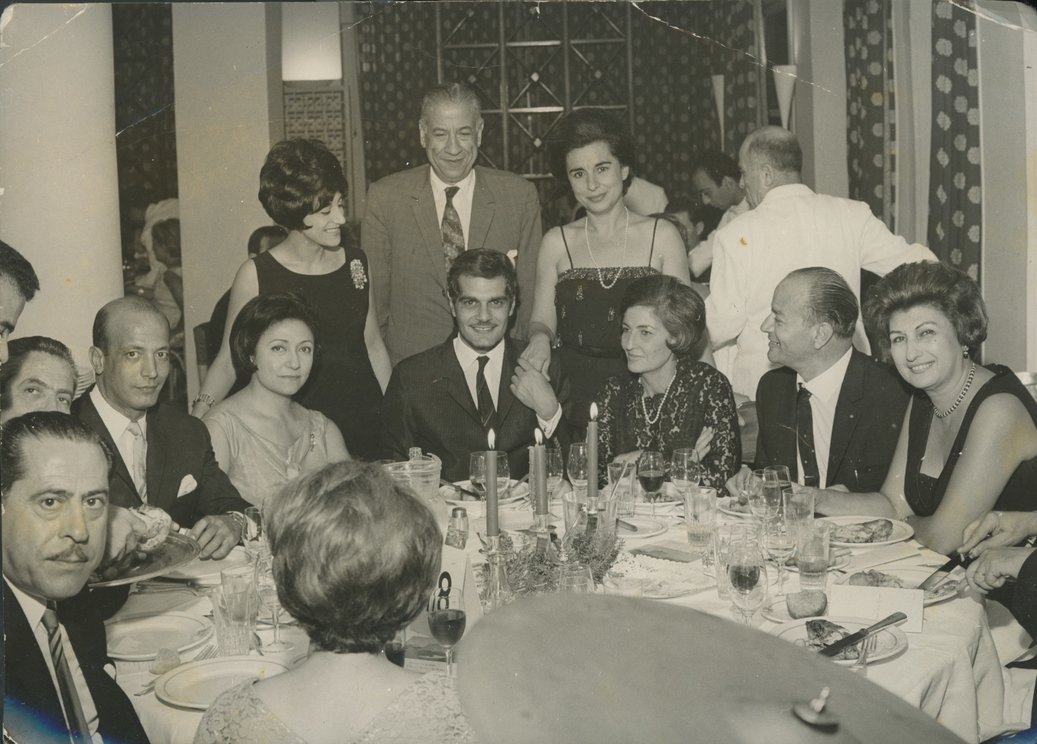
In a wonderfully perplex moment, Khoury’s daughter asks why the camera is on her and interjects to say that she is the one who should be filming her mother – the camera then shifts to Khoury as the subject, and we see the teary director talk about her own life and reflect on herself. Khoury remembers her first marriage, which she was not convinced of, but had agreed to because it seemed like the right thing to do at the time. She talks about her wedding and how it was a big and important event in Alexandria, as footage from the wedding is shown alongside her reminiscence. She then goes on to say that she wasn’t happy and that one day, with the help of her mother and her uncle, she just unexpectedly left her husband and never returned.
Her story telling then tackles the subject of working with her uncle (Chahine) in Cairo, as well as meeting Sara’s father and having children. For Khoury, she highlights that after death comes life, as she remembers this phase in her life in which she lost her father, her grandmother, her mother, and her uncle all around the same time but that she later met Sara’s father, had children, and had one of her brothers return to Cairo after having lived abroad for some time.
The film culminates with a closer look at Khoury’s daughter Sara, as the focus is tilted. At some point in the film, we see Sara with her mother at the hospital and she says that she is done nursing her (Khoury was undergoing treatment for breast cancer at the time). At that moment in the hospital, when Khoury asks her daughter what she will do now that she is done nursing her, Sara very charismatically replies, “I’m going to focus on me!”
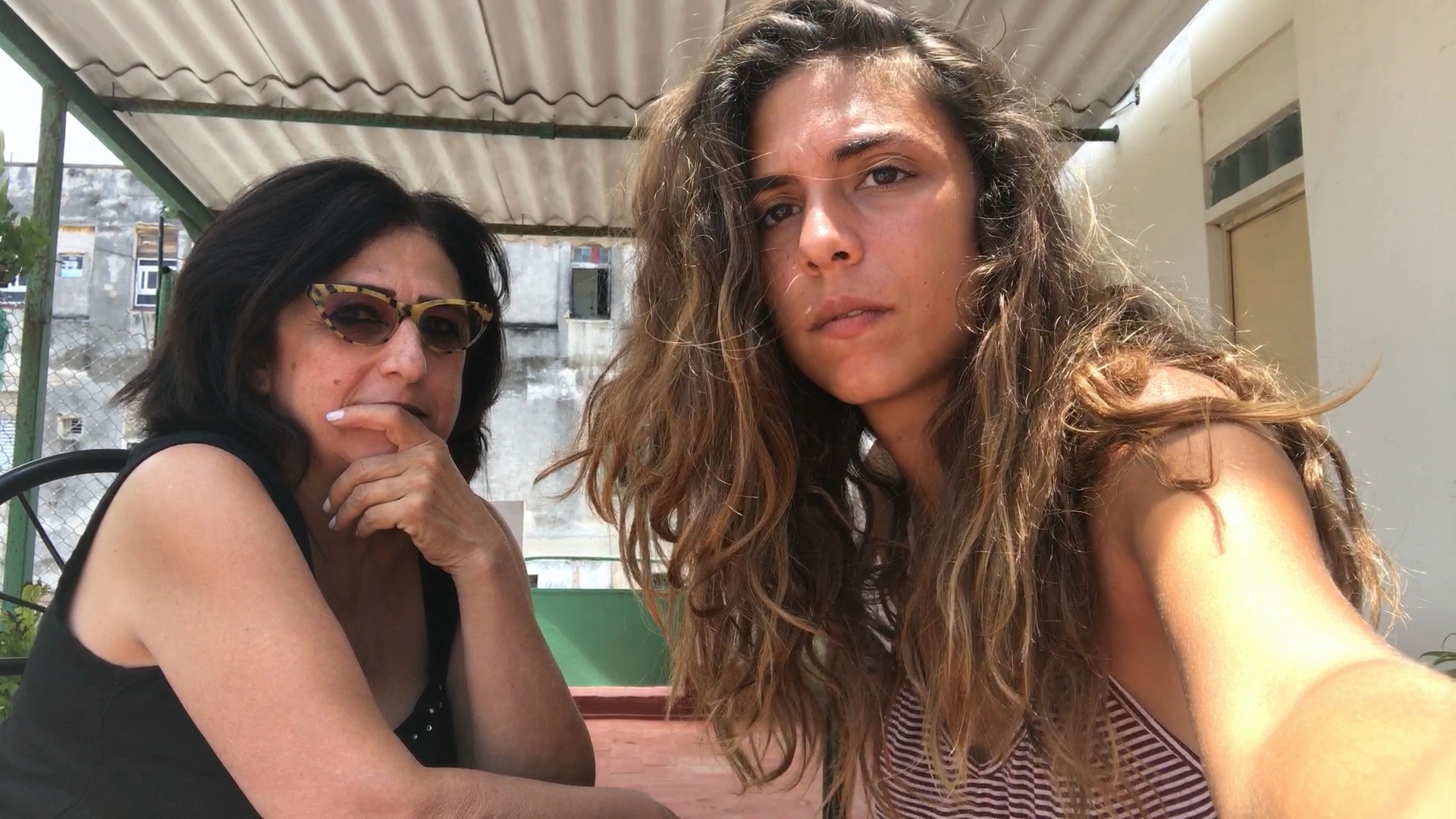
Following this scene at the hospital, we see Khoury visiting her daughter in Cuba. During this visit to her daughter in Cuba (where she is studying film), Sara talks to her mother about how she feels about her, bringing up childhood memories and tying it into who she is now.
In a seemingly similar strong-willed conviction as that of her great-grandmother’s, Sara talks of how her mother’s absence as a child (due to work duties) affected her, as well as how she feels as though she has an identity crisis. Through these emotional conversations however, we see a family trying to understand and piece a puzzle together rather than get upset and throw the pieces away.
Let’s Talk is a beautiful and – at times – achingly real portrayal of life’s complexities. The documentary is an open door to vulnerability and the human aspect of it that ties us all together as every one of us – after all – is just trying to figure it all out along the way.
*Featured image courtesy of ‘Let’s Talk’ Facebook page




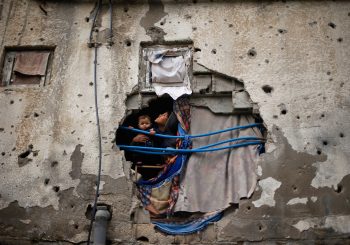

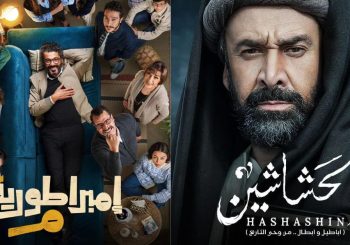
Comments (2)
[…] دعنا نتحدث(2019) ، تقدم ماريان خوري نظرة صادقة وحميمة لحياة أربعة […]
[…] ‘Let’s Talk’ (2019), Marianne Khoury presents an honest, intimate view of the lives of four generations of […]